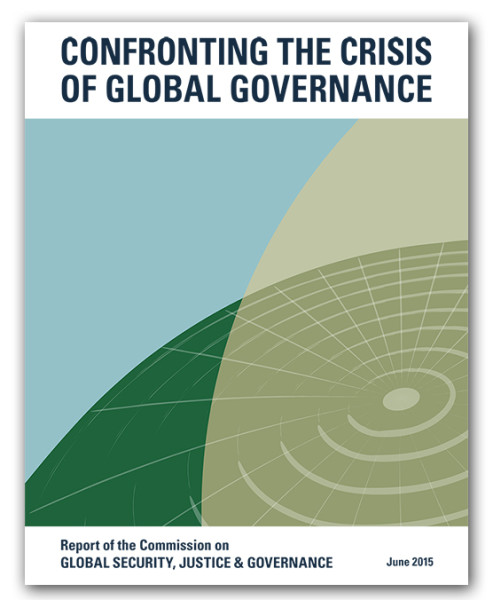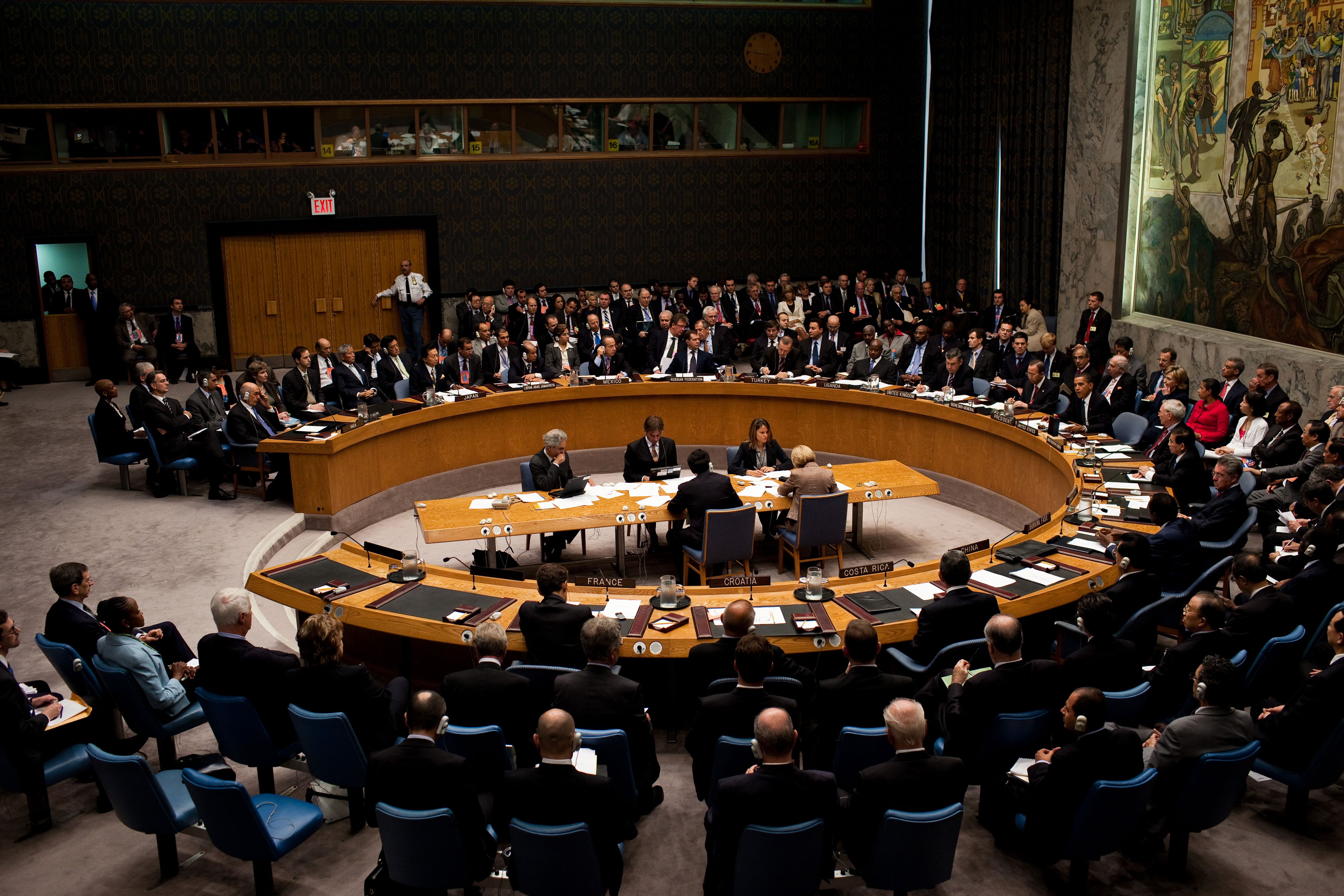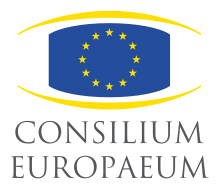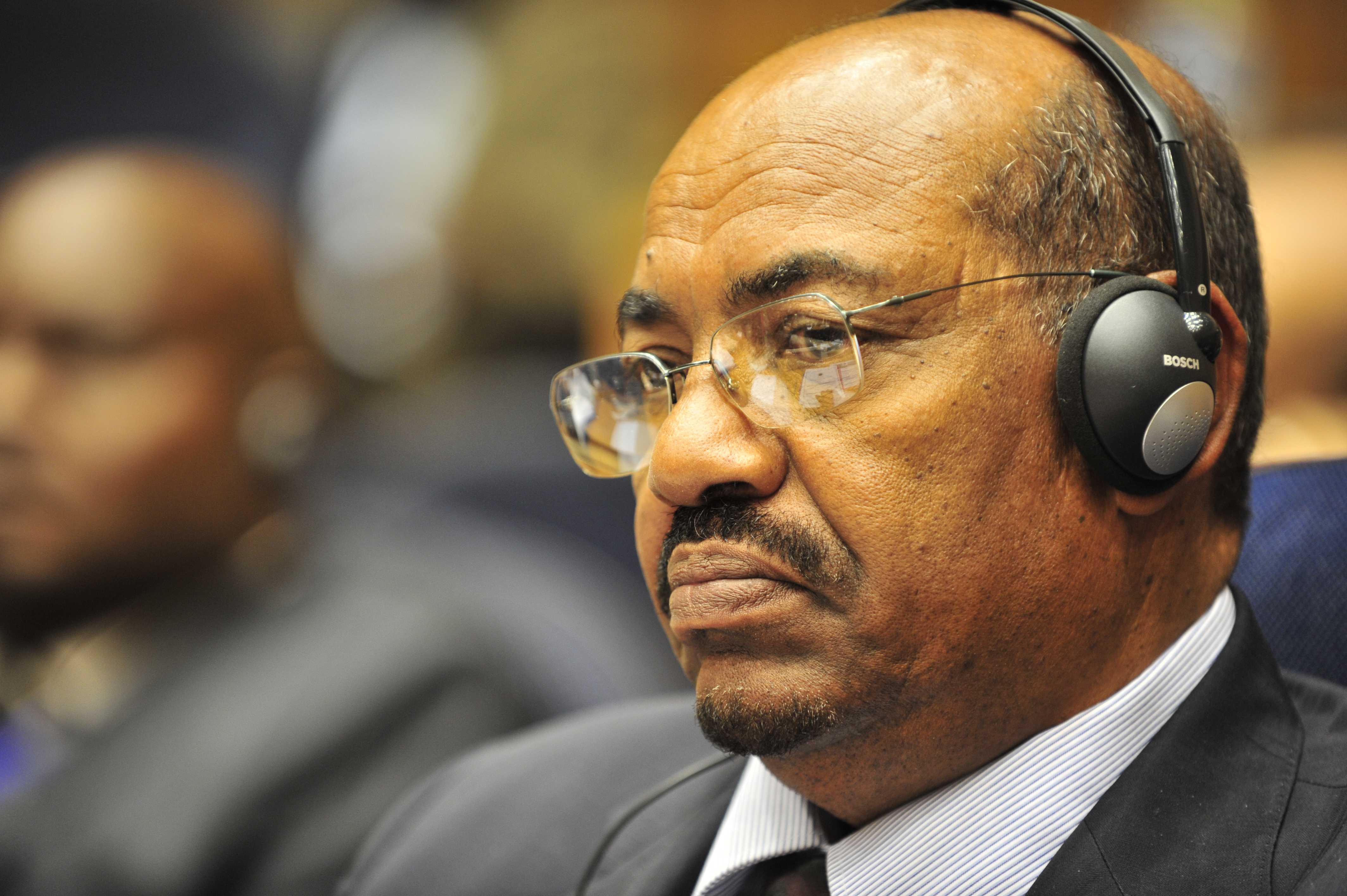 Last month, the Report of the Commission on Global Security, Justice & Governance was launched at the Peace Palace in The Hague. Co-Chaired by former U.S. Secretary of State Madeleine Albright and former UN Under-Secretary-General for Political Affairs Ibrahim Gambari, the report concluded that the UN and global governance institutions are ill-suited to address modern, evolving threats, and must thus reform or risk the worsening of global crises.
Last month, the Report of the Commission on Global Security, Justice & Governance was launched at the Peace Palace in The Hague. Co-Chaired by former U.S. Secretary of State Madeleine Albright and former UN Under-Secretary-General for Political Affairs Ibrahim Gambari, the report concluded that the UN and global governance institutions are ill-suited to address modern, evolving threats, and must thus reform or risk the worsening of global crises.
According to Secretary Albright, the world needs “more capable tools of global governance, with different kinds of public, private, and mixed institutions designed for twenty-first-century challenges.” The report presents a number of reforms designed to deal with this “crisis in global governance”, including specific ones targeted at the UN Security Council. Notably, the report calls for restricting the veto, one of the most controversial and significant tools of diplomacy of the past century.
The United Nations Security Council, a fifteen-member decision-making body, has long been the subject of consistent reform efforts and accusations of unfairness. The five permanent members of the UNSC – France, United Kingdom, United States, Russia, and China – wield veto power, ensuring that no resolutions are passed without their assent or, at minimum, abstention. For many observers, this power enshrined in the Charter of the United Nations has led to persistent gridlock on pressing international issues, including the conflict in Syria and the Israeli-Palestinian impasse.
In the report, Gambari argues that “the veto was not made to be used to the extent it is now being used, to delay action by the Council on some of the most horrendous humanitarian situations.” In addition to a call for enlarging the Security Council, which the report claims is “unfair” in its current structure, the report proposes the creation of a new voting mechanism that would allow permanent members to cast a “no” vote without resorting to a full-blown veto.
The first iteration of such an idea came in the form of France’s “Responsibility Not to Veto” proposal, introduced by French Minister of Foreign Affairs Laurent Fabius in the fall of 2013 and reiterated by him this past January at a conference in Paris. The proposal suggests that the five permanent members of the Security Council “themselves could voluntarily regulate their right to exercise their veto.” This system, likely based on a common “statement of principles” that would be passed by the P5, would function based on a “trigger system”: once 50 member states submit a request to the Secretary-General, he or she would be called upon to determine the nature of the issue being brought up for review. If (s)he concluded that the issue fell under the umbrella of “mass atrocity crime,” “the code of conduct would immediately apply” – in other words, the permanent members would agree to suspend their right to veto. According to Fabius, the code would prevent the Security Council from being “powerless in the face of … tragedy,” as it has been with the Syrian conflict.
Such a proposal would build on the “Responsibility to Protect” (R2P) norm, adopted at the 2005 World Summit, which argues that states have a responsibility to protect their populations from mass atrocity crimes and human rights violations and, in the event of a failure to do so, forfeit aspects of their sovereignty. Like R2P, the proposal “Responsibility Not to Veto” would not necessitate an amendment of the United Nations Charter, which Laurent Fabius argues is one of its core strengths. The proposal includes an important caveat, however: “to be realistically applicable,” Fabius concedes, “this code would exclude cases where the vital national interests of a permanent member of the Council were at stake.”
The desire to limit the veto is not a new one, and is commendable in spirit. But France’s proposal, which has gained traction in the past year the Global Center for the Responsibility to Protect (GCR2P) recently launched a #restraintheveto campaign has several flaws and potential dilemmas that threaten to undermine both it and similar proposals to restructure the Security Council.
Firstly, the vague classification of “mass atrocity crimes” begs two core questions: what is the threshold for these crimes, and who is to decide? The GCR2P uses the umbrella term to include “genocide, crimes against humanity, ethnic cleansing and war crimes”, but as seen in cases ranging from Rwanda to present-day Syria, these terms can have ambiguous meanings and engender fierce political debate. According to France’s proposal, the Secretary-General of the UN would have the prerogative of deciding when the norm would come into effect. Yet the Secretary-General is not a judge, and is not vested with any legal power. What gives him the right to make such adjudications?
The second, and perhaps most serious, ambiguity stems from the caveat itself. The proposal states that the Responsibility Not to Veto norm would not apply in cases where the “vital national interests” of a P5 member are at stake. Yet as most avid followers of the Security Council would note, most uses of the veto have been framed within the rhetoric of “national interest”. Russia and China have no qualms about invoking such rhetoric to shore up Assad’s regime in Syria. In keeping with such logic, what is to prevent P5 states from using this caveat as a convenient loophole to continue their use of the veto?
Despite these issues, the introduction of the Responsibility Not to Veto norm could have some good effects. As argued persuasively in extant scholarship, international norms, though often unable to constrain or forcibly limit state behaviour, often have significant causal effects on the foreign policy of states. The French proposal could influence state behaviour in a couple of main ways. First, the existence of a norm that emphasizes veto restraint except in cases of vital national interest would force states to present narrow and persuasive arguments for what constitutes such interests, potentially limiting the number of instances where that argument is invoked. This also applies to debates on the introduction of the norm itself. If P5 members were to refuse to commit to a “statement of principles” drafted by France, the onus would be on them to explain why they felt the need to table a resolution committed to preventing mass atrocity crimes, further bringing the issue of Security Council reform to the forefront.
Second, as argued by Council on Foreign Relations Fellow, Stewart Patrick, the code could “lay down a useful political marker”. If a P5 member used the veto in a way that others felt violated the “Responsibility Not to Veto” norm, other coalitions or international institutions would be on “firmer moral and political (though not necessarily legal) ground in intervening in an alternative multilateral manner.”
Unfortunately, the most telling predictor of the future of France’s proposed “code of conduct” lies in the behaviour of the P5 nations themselves. In the last sentence of a report on references to veto restraint at the UN, the Global Center for the Responsibility to Protect concludes: “Four additional states have spoken on the veto, but did not express support for the French initiative: China, Russia, United Kingdom and United States.” As with any other initiative to reform the Security Council, all progress will be halted if the permanent members of the Security Council are not on board. With the 70th anniversary of the United Nations Charter taking place in New York this fall, it will be interesting to see what steps France will take to further negotiate its proposal with its fellow, and resistant, P5 nations.





